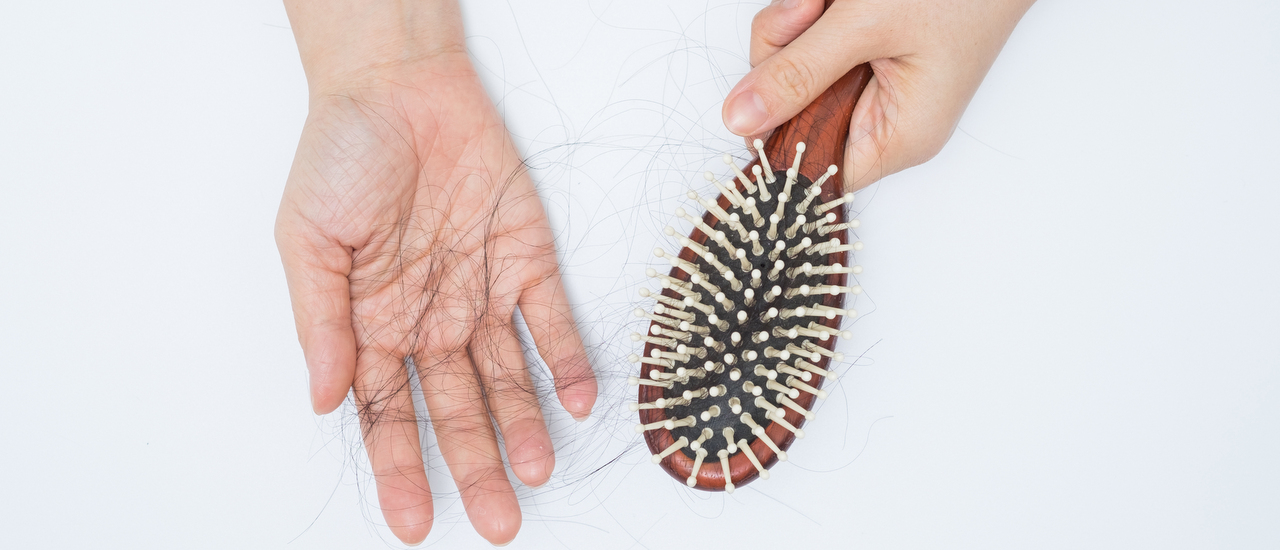Seeing a bunch of hair on your brush or in the shower drain can be a shock! Baldness – also known as alopecia – is usually a symptom of an underlying cause. So, let’s take a look at the root of the problem.
Conditions that cause hair loss
Hereditary hair loss is one of the most common conditions. Known as male-pattern – and female -pattern baldness; this boils down to your family history. Scalp infections are another culprit: have you ever heard of ringworm? It has nothing to do with worms! It’s a fungal skin infection with a ring-shaped appearance, which can also lead to hair loss.
Even specific events can trigger hair loss – such as a physical or emotional shock, extreme weight loss or even surgery. This is temporary and your hair will usually grow back in a few months.
Another main cause of early hair loss is a condition called alopecia areata – here is what you need to know about it.
Alopecia areata
This is an autoimmune disease and, according to The National Alopecia Areata Foundation, there are three different types:
- Alopecia areata patchy
- Alopecia areata totalis
- Alopecia areata universalis
Alopecia areata patchy is the most common kind: With this type, you’d lose hair in round or oval-shaped patches, and only from your head; in certain cases, the exposed skin can become itchy and tender.
Alopecia areata totalis causes complete baldness, and alopecia areata universalis causes loss of all body hair. Luckily, these two types are quite rare!
Causes
The condition causes the immune system to attack its own hair follicles; because of this, hair begins to fall out. It’s important to note that poor nutrition and stress are factors that can increase your risk of alopecia; so, it’s essential that you eat a healthy, balanced diet and manage your stress-levels.
Treatment
There is no cure for alopecia areata, but it can be treated with medication that will help your hair grow back. Anti-inflammatory drugs are generally prescribed and can be injected, taken in pill form or rubbed onto the skin as a cream or ointment.
It’s essential to make an appointment with your doctor to discuss these different treatment options.
We understand that you may be embarrassed by hair loss, but unless you see a doctor, you won’t know whether or not treatment is available for your specific case.
Sources
http://www.webmd.com/skin-problems-and-treatments/guide/alopecia-areata
http://www.webmd.com/skin-problems-and-treatments/hair-loss/tc/alopecia-areata-topic-overview?page=2
http://www.mayoclinic.org/diseases-conditions/hair-loss/basics/causes/con-20027666
http://www.mayoclinic.org/diseases-conditions/hair-loss/basics/risk-factors/con-20027666
https://rarediseases.info.nih.gov/gard/614/alopecia-universalis/resources/1
http://www.hishairclinic.com/alopecia-totalis/
https://www.naaf.org/alopecia-areata/types-of-alopecia-areata

